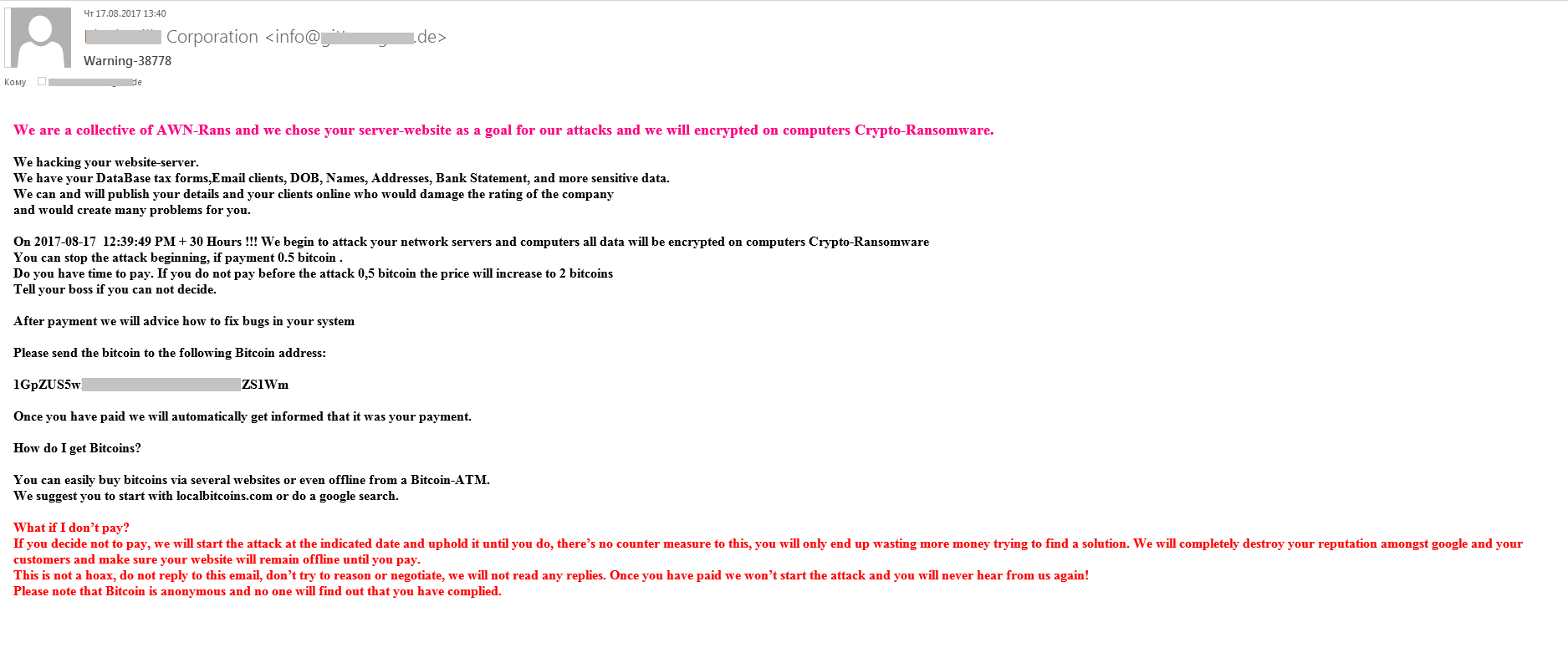
It often happens that inventions and technologies that start out good end up turning into dangerous tools in the hands of criminals. Blockchain is no exception to this rule, especially in its most common cryptocurrency incarnation. Cryptocurrencies crop up in all kinds of spam: from traditional advertising (courses about investment and trade) to more fraudulent and malicious varieties. Quite often, cryptocurrencies are used by attackers as originally intended — as a means of payment (albeit from victims). We found and delved into several spam mailings in which cybercrooks exploited user paranoia about information threats and took bitcoins as payment for peace of mind. The attacks targeted employees of small companies, but such emails could be sent to any user’s personal mail.
In the first email, the attacker claimed to have installed malware on a porn site visited by the victim, and to be in possession of several videos recorded from both the device screen and cameras; not only that, a keylogger had supposedly provided access to the user’s IM, email, and social media contacts. To get the attacker off their back, the victim was asked to transfer the equivalent of $320 to the bitcoin wallet specified in the email. It was also mentioned that a built-in tracking pixel would inform the attacker that the email had been seen. And if the recipient wanted proof of that, they should reply to the message, whereupon the compromising info would be sent out to five of their contacts. As a postscript, the scammer warned against going to the police: he allegedly lived in Belarus, so the investigation would drag on for years.
The next email was wordy but imaginative, written by a hacker by the name of Andrey. The attacker informed the recipient that he had studied the latter’s company, together with its employees and their relatives, found weaknesses, and was planning to ruin it. The author listed no fewer than seven ways to achieve this goal, from simply writing negative reviews on various websites to creating fake company reports in his garage(!) and sending them to government departments. However, the hacker’s preferred outcome was for the company to see sense and transfer 3 bitcoins to his wallet. Like the previous email, it specifically mentioned not going to the cops, since “Andrey” lived in Ukraine.
Another email was the work of not one hacker, but an entire chain gang. The attackers allegedly had hacked the company’s server and got hold of information about its clients, bank accounts, tax payments, etc. Now they were threatening to damage the company’s reputation by publishing this information online. It was also stated that at some unspecified moment they would launch an attack on the company’s servers and computers, encrypting all data. To call off the attack, the blackmailers demanded 0.5 bitcoin. If the cryptopayment was not made before the start of the attack, the amount would rise to 2 bitcoins.
Sadly and (perhaps) surprisingly, some people still fall for such concoctions. The targets of these mailings are usually small companies that lack the resources for decent anti-spam protection and basic information security training for staff. So let us reiterate: be vigilant, stay calm, and take anonymous threats of this kind with a pinch of salt.

























Every little bitcoin helps